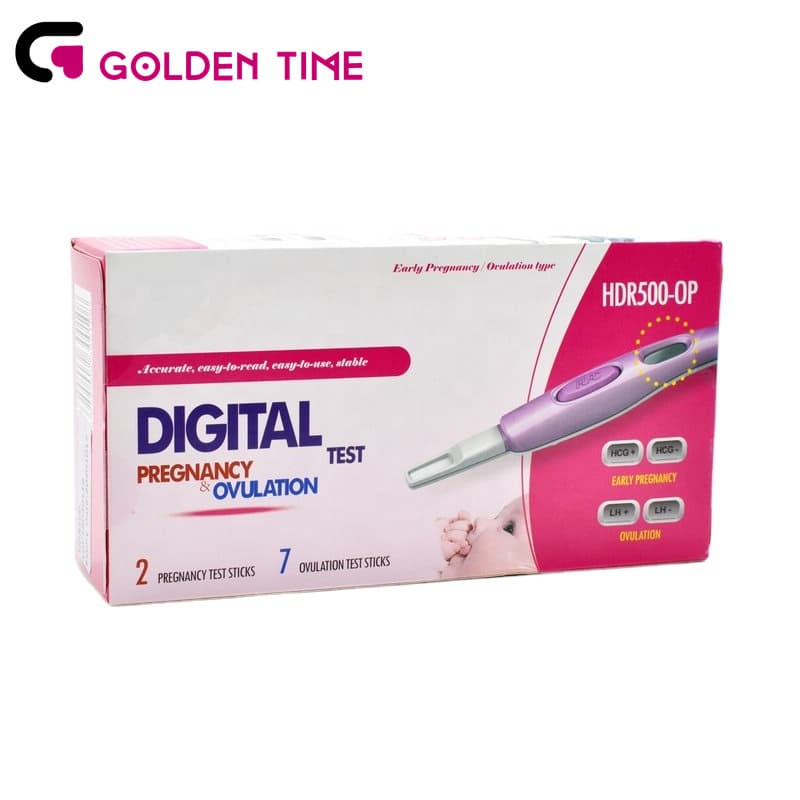Feb . 14, 2025 06:54 Back to list
pregnancy test accuracy
Navigating the world of pregnancy tests can seem overwhelming, given the myriad options available and the sheer volume of information—or misinformation—surrounding them. Understanding pregnancy test accuracy involves delving into several critical areas, including the time of testing, the type of test used, and the sensitivity of the test itself. Millions of women rely on these tests each year to provide them with vital information about their reproductive health, making it crucial to sort fact from fiction.
Authoritative health organizations, such as the American Pregnancy Association, maintain that most home pregnancy tests are 97-99% accurate when used after the first day of a missed period. These figures are reflective of tests conducted under ideal conditions, emphasizing the user's adherence to instructions as a critical component of ensuring accuracy. Simple user errors, like checking results too early or misreading them, can skew perceptions of efficacy. Practically, individuals often seek peer experiences to gauge product credibility. Many find comfort in shared anecdotes from forums or reviews where others have faced similar uncertainties. Yet, while personal stories provide relatable insights, they should not replace professional medical advice. Authenticity and trustworthiness in discussing pregnancy test accuracy arise from blending empirical evidence with expert advice, ensuring that users understand when and how to use tests effectively. A pivotal factor in promoting reliable information is acknowledging advancements and scientific endorsements in the field. Novel techniques, such as digitized pregnancy tests offering greater ease of interpretation, have alleviated user anxiety. They provide clear, digital readouts, minimizing human error, and enhancing trust in results. Moreover, healthcare professionals consistently advocate for follow-up testing—preferably through quantitative blood tests—if results and physical symptoms diverge or if there is any doubt. Ultimately, the accuracy of a pregnancy test cannot solely rely on the test itself but rather on a combination of correct usage, appropriate timing, and understanding the limitations and capabilities of the testing method. Pregnant individuals are urged to use these tools as part of a broader health strategy, consulting healthcare providers for confirmation and guidance. This holistic approach fosters informed decision-making, ensuring that pregnancy tests serve as reliable allies during the life-changing journey of parenthood.


Authoritative health organizations, such as the American Pregnancy Association, maintain that most home pregnancy tests are 97-99% accurate when used after the first day of a missed period. These figures are reflective of tests conducted under ideal conditions, emphasizing the user's adherence to instructions as a critical component of ensuring accuracy. Simple user errors, like checking results too early or misreading them, can skew perceptions of efficacy. Practically, individuals often seek peer experiences to gauge product credibility. Many find comfort in shared anecdotes from forums or reviews where others have faced similar uncertainties. Yet, while personal stories provide relatable insights, they should not replace professional medical advice. Authenticity and trustworthiness in discussing pregnancy test accuracy arise from blending empirical evidence with expert advice, ensuring that users understand when and how to use tests effectively. A pivotal factor in promoting reliable information is acknowledging advancements and scientific endorsements in the field. Novel techniques, such as digitized pregnancy tests offering greater ease of interpretation, have alleviated user anxiety. They provide clear, digital readouts, minimizing human error, and enhancing trust in results. Moreover, healthcare professionals consistently advocate for follow-up testing—preferably through quantitative blood tests—if results and physical symptoms diverge or if there is any doubt. Ultimately, the accuracy of a pregnancy test cannot solely rely on the test itself but rather on a combination of correct usage, appropriate timing, and understanding the limitations and capabilities of the testing method. Pregnant individuals are urged to use these tools as part of a broader health strategy, consulting healthcare providers for confirmation and guidance. This holistic approach fosters informed decision-making, ensuring that pregnancy tests serve as reliable allies during the life-changing journey of parenthood.
Latest news
-
Highly Accurate hCG Pregnancy Test Strips - 5 Min Results
NewsAug.02,2025
-
Premium Empty ABS Plastic Cassettes: Durable & Lightweight Storage
NewsAug.01,2025
-
Accurate Cocaine (Coc) Rapid Test Kit | Fast & Reliable Detection
NewsJul.31,2025
-
Accurate HCG Pregnancy Test Strips | Fast Home Use Kit
NewsJul.31,2025
-
Reliable Early Pregnancy Test Kit Supplier - Multi Plastic Cassette Options
NewsJul.30,2025
-
Transferrin Rapid Test Cassette – Reliable Tumor Marker Detection
NewsJul.29,2025

